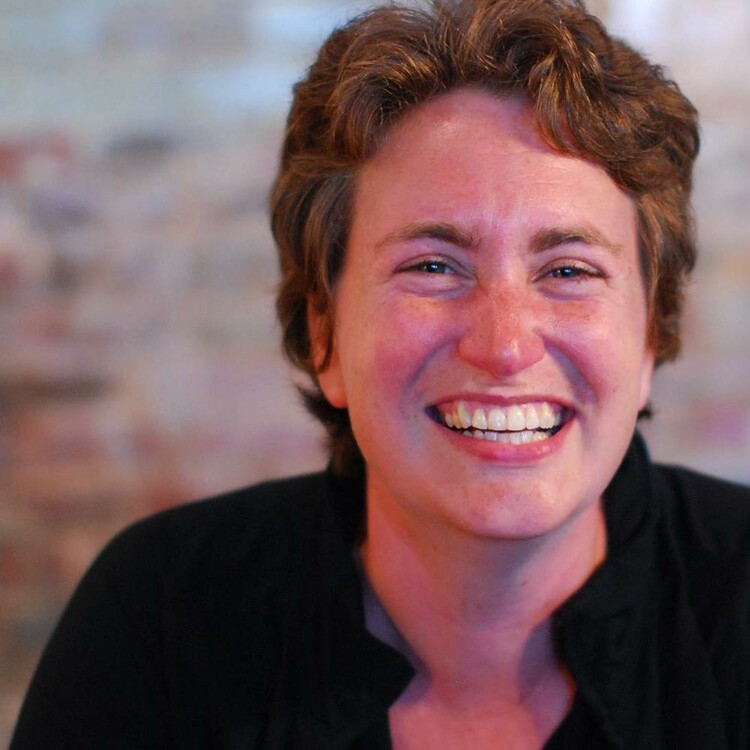Postcard from Boston’s Small and Fringe Theatres
I'm writing this article from my rehearsal hall. I meant to write it sooner and elsewhere, but here I am: on the due date and between my day job, my rehearsals, and seeing a show on every night off for the past month, this is the first chance I've had. So, the cast members of Whistler in the Dark's Tales from Ovid are staggered around the space working with a vocal coach while I type, and I am accompanied by the ever-present sound of “ah-humma.”
It's a good problem to have: between the work I do and the work that is available to me to see in my community, my time can be eaten up by the theatre. This wasn't always the case.
When I moved to Boston in the summer of 2005 to found Whistler in the Dark, I had little knowledge of the Boston theatre scene. Though I grew up in a suburb of Boston and spent my teenage years coming into the city frequently to see performances at the A.R.T. or the Huntington, I had no idea what else was happening here. And since I am infinitely more interested in work that goes on in intimate spaces, and with companies that are actively seeking to create long-term collaborative relationships, I set about looking for my peers.
I am infinitely more interested in work that goes on in intimate spaces, and with companies that are actively seeking to create long-term collaborative relationships
I had a hard time finding them. There were a few small and fringe companies that I found, but they were scattered across the city and rarely talking to one another. People simply didn't know their counterparts at other theatres and, for the most part, weren't seeing their work.
This feeling of disconnection from the other artists in town led me to seek an opportunity to bring artists from different companies into the same room to work—and then hopefully to start talking about that work. The result was FeverFest, an evening of curated scenes from five different companies. The event was so exciting to its participants that it became an annual affair, reaching out to incorporate more artists and companies. Over the next few years, we found that the pieces originating in the festival were further developed and given new life by the companies that created them. Additionally, festival artists were seeing each other’s work and spending a week in the same tiny dressing room—these personal and artistic introductions were opening doors for these artists to collaborate on other projects.
All of which was great, but it had grown into a project that was really larger than Whistler's capabilities and was beginning to stretch us outside of our mission. And so in 2008, a group of small companies and unaffiliated artists came together to work on what would eventually become the Small Theatre Alliance of Boston, an organization with a goal of increasing communication between our companies, cross-pollinating our artists and our audiences, and sharing both physical and intellectual resources.
There were ten founding members of the Alliance. Today we have over forty-five member organizations, all self-identifying as “small” or “fringe” and all producing regularly in the Greater Boston area.
Most of the artists who are working in our sector came here for school, or for a day job, or because they followed a partner or spouse. Once they were here, however, they looked around at the community and decided to carve out space for themselves. Many of the stereotypes about Bostonians in general hold true for our community: we are an increasingly tight-knit community (at times even clannish) and while it can initially be difficult to find your way in, once you become part of this community, you find yourself among a fiercely loyal and generous group.
The biggest challenges facing us are space and money, obviously. Those are the same problems faced by theatres all across the country, of course, and so they might go without saying. However, the high cost of living in Boston coupled with the fact that almost none of the fringe companies can provide anything beyond token stipends to their artists makes it especially hard. Most artists are working a full-time day job and cobbling together freelance work. Almost no one in this city is able to make a living solely as an artist, and the challenge is much higher for those of us who work primarily or exclusively on the small or fringe level.
Almost as difficult to contend with for companies in this category are the challenges of raising public awareness to the work being done. Most of these organizations are run by artists who needed to create their own work and started a company to do just that. Marketing, advertising, business management—these are skills that are self-taught or muddled through. There is an audience in Boston for the challenging and unpredictable work that emerges on the fringes—as has been proven by both critical and box office successes—but it is always a struggle getting the word out to that public. Our greatest asset is easy to identify: our community—not just of artists but also the audiences, funders, students, and supporters who make it possible to do the work. We have a long wish list of things that we think will be the next step for us: more spaces, access to better funding, better audience development, and the list goes on. I'm sure as progress is made on those fronts, we'll be an even healthier community. As we become healthier as a community, we'll also attract more and more artists who are working in different models—more ensemble theatres, more companies who are generating their own work, more development of our own local artists. And as this happens, that development will lead to an artistic identity that is unique and distinct for our city and our region.




Comments
The article is just the start of the conversation—we want to know what you think about this subject, too! HowlRound is a space for knowledge-sharing, and we welcome spirited, thoughtful, and on-topic dialogue. Find our full comments policy here
Hi Meg,
I just wanted to leave this little love note to Whistler in the Dark's erstwhile FeverFest; I performed in the Fest in its first year with the now-defunct (but emphasizing the FUN part of defunct) experimental mime troupe Ellipsis. It was my first foray into the Greater Boston theater zone and, in my opinion, working, curating and creating alongside like-minded fringe theater professionals provided an experience of kinship that transcended, like, "networking?" Does that make sense? In the end, the rootsy, collegial atmosphere that you guys cultivated for the Festival made me feel GREAT about small Boston theater. Thanks!
Hey Brendan - we loved having the mimes as part of FeverFest - and I agree completely with you about the spirit and atmosphere of the festival. That year we had mimes, multi-media, performance art, devised work and established scripts all sharing a space - and the backstage energy led directly to development of three projects outside of the festival. It's why I always feel like the best way to network is to get in a room and either work together or see and respond to work together - it is so much more fruitful than yet another mixer ever could be...
~Meg
As a sometimes Bostonian and current, full-time Chicagoan, Chicago offers many of the resources I've been longing to see in Boston for years. The League of Chicago Theatres in the past has offered (free!) professional development seminars in things like marketing, and the Arts & Business Council pairs nonprofit theatres (often small and still emerging) with local business professionals to offer (again) free, professional help with anything from building a board to curating a season. ABC also hosts monthly seminars on things like fundraising and marketing for a very reasonable fee, and anyone from the arts community can attend to learn from their peers and network.
Boston is replete with MBA students, many of whom are eager to share their knowledge with companies doing good. I believe tapping into this resource and forging other business connections could help build the Small Theatre Alliance's reach and power to serve our fringe theatres with what we all need.
Keep it up! Did you model Small Theatre Alliance of Boston after other similar organizations? I'd be interested in hearing how other small theaters are helping each other across the country.
On the subject of rehearsal space, I'm excited to see what Fractured Atlas finds in their test projects to create an online menu (of sorts) for rehearsal spaces that are instantly bookable. I heard about the effort in November's issue of American Theatre Magazine (yes, it is still October, maybe I'm living in the future). They are test driving it in other cities (NYC and Austin are a couple I remember off hand.), and the big success so far has been the benefit for both the artists and the spaces when there are last minute cancellations that artists can know about instantly and jump on. Of my paraphrasing has sparked your interest head over to: :http://www.fracturedatlas.o...
I'd love to see this come to Boston, or maybe an awesome Boston theatre support organization (cough cough Stagesource?) start a compiled list of what places even rent space. It's hard to know what the rules are, which places only take music or dance based activities vs spaces you need to sponsored to get into.
There's an irony that in the suburbs there are loads of community theaters, often with pretty nice performing spaces. They often have a solid corps of competent actors who can stage new works and love the opportunity to be on stage. Curiously, in Boston, with more real estate and bigger, more diverse population these community theaters are more rare. Maybe there needs to be a closer marriage between EMACT and folks creating new shows.
Thanks for your comment Chris! You're right, there's a vibrant community theatre scene around MA, and I would love to hear more from that sector in our larger Boston theatre conversations.